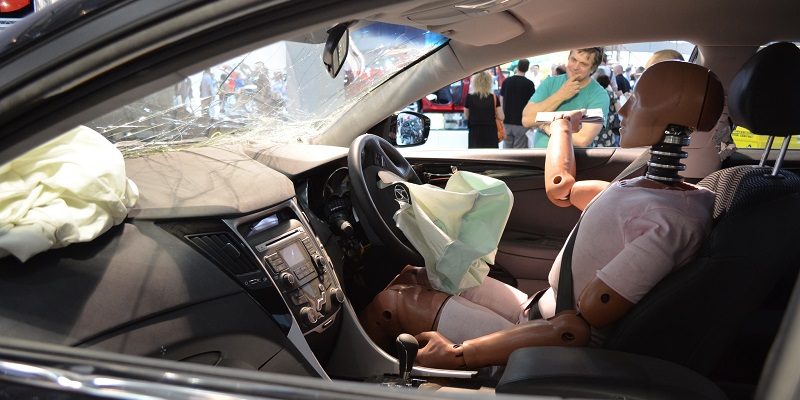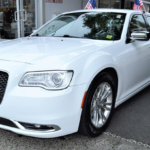Yes, recalls happen all the time but if your vehicle is among the millions of vehicles being recalled after the discovery of the Takada airbag inflator failure, there are some things you need to know. For one, this recall is no small deal – it’s the largest automotive recall in U.S. history and it involves a defective inflator and the propellant device. In the event of a crash, it may deploy improperly shooting metal fragments into the driver and/or passengers in the vehicle.
The recall impacts brands including Acura, Audi, BMW, Chevrolet, Chrysler, Daimler Trucks North America (Sterling Bullet), Daimler Vans USA (Sprinter), Dodge/Ram, Ferrari, Ford, GMC, Honda, Infiniti, Lexus, Mazda, Mercedes-Benz, Mitsubishi, Nissan, Pontiac, Saab, Saturn, Subaru, Toyota and Volkswagen (VW).
According to the National Highway Traffic Safety Administration (NHTSA), “multiple automakers are recalling vehicles with certain types of driver and passenger frontal airbag inflators manufactured by Takata Corporation.” There are nearly 70 million recalls as a results of this and priority is now on replacing airbag inflators located in geographic areas with persistent heat and high absolute humidity like Florida, Hawaii, and the U.S. Virgin Islands. Prioritization is based on the risk of injury or death to vehicle occupants and is being completed in phases by the location of the vehicles and their age. Click here to see the schedule of recall between May 2016 and December 2019.
“The science clearly shows that these inflators become unsafe over time, faster when exposed to humidity and variations of temperature,” said NHTSA Administrator Mark Rosekind. “This recall schedule ensures the inflators will be recalled and replaced before they become dangerous, giving vehicle owners sufficient time to have them replaced before they pose a danger to vehicle occupants. NHTSA will continue to evaluate all available research and will act quickly to protect safety.”
While the original recall of the Takata Air Bags goes back to May 19, 2015, there have since been several recall expansions. As of June 17, 2016, the NHTSA reports a total of 8,867,284 total air bags have been repaired out of the nearly 70 million vehicles recalled in the U.S. In some instances, it’s simply an “interim” repair or remedy where manufacturers are replacing the older Takada inflator with a newly manufactured version of the same product even though it will need to be replaced later.
Sounds like a roundabout way to a fix rather than a permanent remedy, but that’s because many dealers are waiting on the permanent remedy to be made available. Also,a vehicle with an older inflator “is more likely to rupture than a newer version of the same inflator,” according to the NHTSA, so even if a “interim” repair is recommended and available, vehicle owners should have the repair performed.
How to check if your vehicle has been recalled?
To determine if your vehicle is part of this recall, go to NHTSA’s website and run a check with your VIN (Vehicle Identification Number) and vehicle brand. Your VIN may be found on your state vehicle registration or look at the driver’s side dashboard at the bottom of your windshield or at the side doorjamb.
What to do if your vehicle has been recalled?
Call your local dealer equipped to fix the recalled part.
What are the number of deaths/injuries tied to this recall?
The NHTSA reports ruptures of the Takata inflators have been tied to 10 deaths and more than 100 injuries in the United States. There may be potentially more cases that are under review or have not be reported.
An open recall on vehicles can vary from a minor fix to something that can be potentially life-saving when corrected. Vehicle owners should stay informed of the latest recall information by subscribing to NHTSA’s Recall Notification Email System or set up an account with CARFAX to receive free alerts when new recalls relating to your vehicle are issued. CARFAX offers a free app for download or you may use the desktop service.
It doesn’t matter if you have or plan to purchase a new vehicle because some new vehicles are also impacted by this recall and remain on the market for sale today.
Keep yourself and your passengers safe by staying informed of the latest recalls that impact your vehicle!




